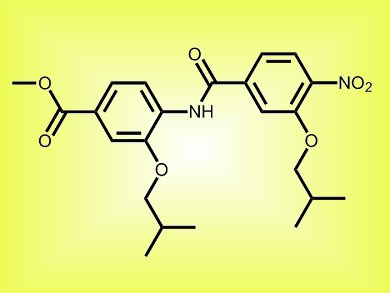The growth of advanced prostate cancer depends on the androgen receptor (AR). Following binding to the male hormone testosterone and to its metabolite 5α-dihydrotestosterone, AR interacts with its cofactor PELP1 (proline, glutamic acid, and leucin protein 1). By this it promots the transcription of genes involved in cellular proliferation.
Preethi Ravindranathan, University of Texas Southwestern Medical Center at Dallas, USA, and colleagues designed a peptidomimetic – a small protein-like chain designed to mimic a peptide – that blocks AR activation by preventing its binding to PELP1. This novel molecule called D2 (pictured) acts by mimicking the LXXLL motif, a PELP1 sequence which is crucial for its binding to AR.
When tested in an animal model, D2 blocked the androgen-dependent growth of prostate tumors. This compound may, therefore, constitute a novel pharmacological tool to treat advanced prostate cancers.
- Peptidomimetic targeting of critical androgen receptor-coregulator interactions in prostate cancer,
P. Ravindranathan, T. K. Lee, L. Yang, M. M. Centenera, L. Butler, W. D. Tilley, J. T. Hsieh, J. M. Ahn, G. V. Raj,
Nat. Commun. 2013, 4, 1923.
DOI: 10.1038/ncomms2912




